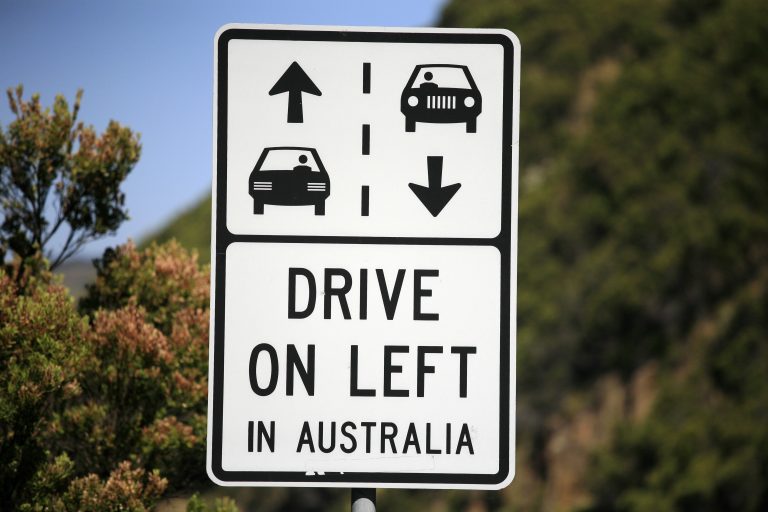Mindfulness and Driving: How Staying Present Can Help Prevent Road Rage
Driving often comes with its fair share of stress, and many people think road rage is just part of the package. But what if it doesn’t have to be? Mindfulness, a practice known for reducing stress by 30% and boosting focus by 25%, can be a game-changer. By staying present and mindful, drivers can keep their cool and handle tough situations with ease.
Shane Perry, a leading mindfulness advocate and small business loan provider at Max Funding, suggests, “Mindfulness not only enhances our driving but also our relationships. By being fully present, we can better understand and connect with those around us.”
Could adopting a more mindful approach make a difference in driving and preventing road rage?
Keep reading and discover how mindfulness can transform your driving experience and help you avoid road rage.
Benefits of Mindful Driving
Mindfulness is about staying present and fully engaging with the moment, which is crucial when you’re behind the wheel. Here are some key benefits of mindful driving and practical tips to help you stay present on the road.
1. Improved Focus
Mindfulness helps you stay attentive to the road and your surroundings. By being fully present, you can better anticipate and react to potential hazards. A study published in the Journal of Occupational Health Psychology found that mindfulness meditation can significantly reduce stress and increase focus.
2. Reduced Stress
Mindful driving techniques can significantly lower stress levels. When you focus on the present moment, you are less likely to dwell on past frustrations or future worries. Research shows that deep breathing exercises can reduce anxiety levels by 40%, making it easier to stay calm in traffic.
3. Increased Patience
Practising mindfulness cultivates patience, making you more tolerant of other drivers’ mistakes and less likely to engage in aggressive behaviours. According to a survey by the AAA Foundation for Traffic Safety, 80% of drivers express significant anger, aggression, or road rage at least once a year.
4. Enhanced Safety
Being present and aware reduces the likelihood of accidents. Mindful drivers are more cautious and make better decisions on the road. Mindful driving practices have been shown to reduce accident rates by up to 30%.
5. Better Emotional Regulation
Mindfulness helps you manage your emotions effectively. By staying aware of your emotional state, you can prevent anger and frustration from escalating. A study found that mindfulness training can reduce driving anger and aggressive driving behaviours.
6. Improved Reaction Time
Mindful drivers have better reaction times because they are more aware of their surroundings. This heightened awareness can help you respond more quickly to unexpected situations on the road.
7. Lower Risk of Distracted Driving
Mindfulness reduces the tendency to engage in distracting activities while driving. A study showed that drivers who practice mindfulness are less likely to use their phones or engage in other distractions.
8. Enhanced Overall Well-being
Regular mindfulness practice can improve overall well-being, which translates to a more positive driving experience. Studies have shown that mindfulness can decrease symptoms of depression and enhance emotional regulation.
9. Increased Awareness of Surroundings
Mindfulness encourages you to be more aware of your surroundings, including other vehicles, pedestrians, and road conditions. This increased awareness can help you navigate safely and avoid potential hazards.
10. Greater Enjoyment of the Drive

Mindful driving allows you to enjoy the journey rather than just focusing on the destination. By being present, you can appreciate the scenery, the feel of the car, and the experience of driving itself.
Mindful Driving Techniques
Incorporating mindfulness into your driving routine can transform your experience on the road, making it safer and more enjoyable. Here are five mindful driving techniques to help you stay focused while driving.
1. Deep Breathing
Deep breathing is a powerful tool to calm your mind and body. It helps reduce anxiety and sets a peaceful tone for your journey. When you take deep breaths, you activate the parasympathetic nervous system, which promotes relaxation.
- Before You Start: Before you even start the car, take a moment to sit quietly and take five deep breaths. Inhale slowly through your nose, hold for a few seconds and exhale through your mouth.
- During the Drive: Whenever you feel stressed or anxious, take a few deep breaths. Focus on the sensation of the air entering and leaving your lungs.
- At Stoplights: Use red lights as a reminder to take a deep breath and reset your focus.
2. Awareness Check
Regularly checking in with your surroundings without judgment keeps you grounded in the present moment. This practice enhances your situational awareness and helps you respond more effectively to changes on the road.
- Visual Scan: Periodically scan your surroundings. Notice the colours of the cars, the shapes of the buildings, and the movement of pedestrians.
- Sensory Awareness: Pay attention to the sounds around you, such as the hum of the engine or the rustle of leaves. Feel the texture of the steering wheel and the seat beneath you.
- Mindful Listening: Turn off distractions like the radio or phone notifications. Listen to the sounds of the road and your car.
3. Emotional Monitor
Being aware of your emotional state helps you manage reactions and prevent road rage. Recognising and acknowledging your emotions without judgment allows you to respond calmly rather than react impulsively.
- Check-In: Regularly ask yourself how you’re feeling. Are you tense, angry, or frustrated? Simply acknowledging these feelings can help diffuse their intensity.
- Breathing Through Emotions: If you notice negative emotions building up, take a few deep breaths to calm yourself. Visualise the tension leaving your body with each exhale.
- Pause and Reflect: If you find yourself getting angry at another driver, pause and reflect on the situation. Remind yourself that everyone makes mistakes.
4. Gratitude Practice
Practising gratitude can shift your mindset from stress to appreciation. Focusing on positive aspects of your journey can transform your driving experience and reduce stress.
- Morning Gratitude: Before you start your drive, think of three things you’re grateful for. It could be as simple as a sunny day or a smooth road.
- Gratitude Moments: During your drive, take moments to appreciate the journey. Notice the beauty of the scenery or the comfort of your car.
- End-of-Drive Reflection: At the end of your drive, reflect on something positive that happened during the journey. This practice can leave you feeling more content and less stressed.
5. Notice-Shift-Rewire
This technique involves noticing distractions, shifting your focus back to the present moment, and rewiring your brain to stay engaged. It’s a practical way to integrate mindfulness into everyday driving.
- Notice: Be aware of when your mind starts to wander or when you get distracted by thoughts or external factors.
- Shift: Gently bring your focus back to the present moment. Pay attention to the road, your surroundings, and your driving.
- Rewire: Stay with the present moment and savour the experience. Over time, this practice can help rewire your brain to be more mindful and less prone to distractions.
Learning More About Mindfulness
To deepen your mindfulness practice, consider exploring resources and classes offered by Raj Kriya & Traditional Yoga School. They provide a range of mindfulness and yoga classes designed to enhance overall well-being. You can learn more about their offerings and how they can help you incorporate mindfulness into your daily life by visiting their website.
By integrating these mindfulness techniques into your driving routine, you can create a more peaceful and focused driving experience. Remember, your car is more than just a vehicle; it can be a sanctuary of calm in a chaotic world.
Drive Mindfully with Adelaide West Driver Training
Incorporating mindfulness into your driving routine can transform your experience on the road, making it safer, more enjoyable, and less stressful. By practising techniques like deep breathing, awareness checks, emotional monitoring, gratitude, and the notice-shift-rewire method, you can stay present and focused while driving. Remember, your car can be a sanctuary of calm in a chaotic world.
Adelaide West Driver Training offers comprehensive driving lessons that emphasise safety and mindfulness on the road. Our experienced instructors are dedicated to helping you develop the skills and confidence needed for safe driving, while also incorporating mindfulness techniques to ensure a calm and focused driving experience.
Contact us to learn more about our personalised lessons, flexible scheduling options, and special introductory offers. Start your journey towards becoming a more mindful and proficient driver today!







